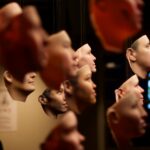Science vs Arts? Wrong question
William Ruto, Minister for Higher Education, did us all a favour recently. Not quite in the way he intended, but never mind. Mr Ruto penned an opinion piece questioning the investment of scarce resources in seemingly unproductive educational disciplines, specifically the arts, humanities and social sciences.
There was a predictable brouhaha in the land, with learned dons coming out of their corner, arms swinging, to defend the causes of the maligned subjects. Mr Ruto seemed to say that Kenya needs to prioritize investment in engineers, agricultural scientists, specialist physicians and the like, because those fields are linked to the goals of Vision 2030, our long-term development plan.
It is, in fact, good management and good economics, current thinking tells us, to link goals to strategies and strategies to investments, and to prioritize what you need to do with scarce resources. And therein lies the problem.
I had the unique privilege of spending time with Professor Henry Mintzberg of McGill University this week. Prof Mintzberg is regarded by many as one of the world’s premier thinkers on the subjects of management, leadership and strategy. He is an avowed contrarian and an original thinker, and I have followed his writings for years.
Both professions – management and economics – said the professor, have a serious problem. They have been taken over by people obsessed with quantitative reckoning, measurement and hard numbers. The dominant logic is that you must set quantified goals and make detailed plans and create measurements for everything.
What this forgets is that at the heart of every human endeavour is precisely that – a bunch of humans. Human “beings”, the good professor reminded us; not human “resources,” “assets” or “capital.” Bringing pseudo-scientific discipline to the subjects of management and economics is causing us to bark up all the wrong trees.
Here’s the thing: managing people is emotional and unpredictable, and it improves with practice. To do it well, you need to be more a student of human psychology than of methodologies and measurements. In today’s organizations, success comes from understanding motivation; from building culture and community; from nurturing the process of creativity and innovation; from managing the emotional climate of the group; from rallying the troops around a genuinely common mission.
And so, we certainly need hard science and hardy scientists in our midst. But we also need people focused on understanding the human being, and not as a laboratory rat. In order to be truly successful, we must have a deep appreciation of hope and fear, ambition and aspiration, motivation and insecurity. Those things are not optional or nice to have – they are absolutely essential. They are the things that allow us build the social glue that is so vital for organizational – and national – success.
And so the question is not whether we need more doctors than poets, or need to liquidate some anthropologists in order to create more engineers. We need adequate reservoirs of all those pools of knowledge. A balanced society combines artistry with science, and does it in ways that are difficult to predict or plan.
Indeed, the challenge is to create more of that rounding in more individuals. Our scientists need to be more able to manage and motivate teams; our people managers need to be able to harness the transformative power of technology. There is really little point in being just one or the other. Have a core discipline and a specific set of skills, by all means – but don’t let that narrow your life and vision. One-club golfers don’t win the tournament.
And so the bigger question for the minister is not which ratio of skills is correct; it is the more vexed one of how we create a society that is trained to THINK – clearly, comprehensively and creatively. Future success will not come from worrying about dots, but from connecting them.

Buy Sunny Bindra's new book
The X in CX
here »
Popular Posts
- Make this your year of being boringJanuary 4, 2026
- My books of the yearDecember 14, 2025
- Confessions of an explaining personDecember 7, 2025
- Here’s why you should become foolishNovember 30, 2025
- How to listen, really listenNovember 16, 2025















